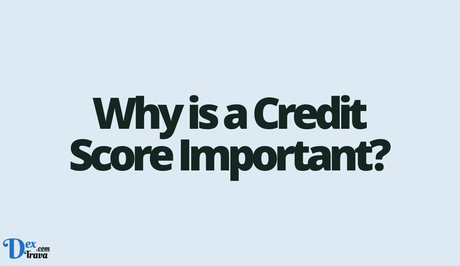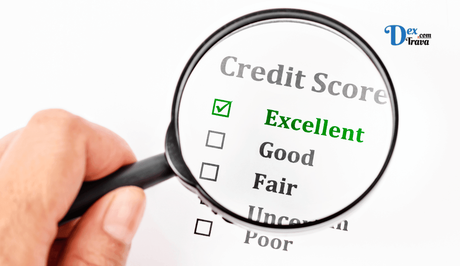Your credit score is a critical part of your financial health. It can determine your eligibility for loans, credit cards, and rental agreements. If your credit score is low, qualifying for loans or credit cards with favourable terms can be challenging. However, improving your credit score can be daunting, especially if you don't know where to start. In this article, we will discuss several strategies on how to improve your credit score fast.
If you've ever applied for a loan or a credit card, you've probably heard the term “credit score” before. But what exactly is a credit score, and why does it matter in personal finance?
A credit score is a numerical representation of your creditworthiness or ability to repay debts. It's a three-digit number that ranges from 300 to 850, with higher numbers indicating better creditworthiness. Lenders and creditors use your credit score to assess the risk of lending you money or extending your credit. The higher your credit score, the more likely you will be approved for loans and credit cards, and the better terms and interest rates you'll be offered.
Also, See:
- How to Pay Off Debt Fast With No Money
- 11 Ways to Save Money Fast on a Low Income
How is a Credit Score Calculated?

Credit scores are calculated by credit bureaus, such as Equifax, Experian, and TransUnion, using a mathematical formula that considers various factors related to your credit history. The exact formula used to calculate credit scores is proprietary and not publicly disclosed, but we do know the general factors that are considered:
Payment History: This is the most significant factor in your credit score, accounting for 35% of the total. Lenders want to see that you make your payments on time, every time. Late payments, missed payments, and defaults can significantly damage your credit score.
Credit Utilization: This accounts for 30% of your credit score. It measures how much of your available credit you're using. Lenders like to see that you're not maxing out your credit cards or other lines of credit, which indicates you may be overextended and unable to repay debts.
Length of Credit History: This accounts for 15% of your credit score. Lenders prefer borrowers with a long history of responsibly managing credit, as it demonstrates a pattern of reliability.
Credit Mix: This accounts for 10% of your credit score. Lenders like to see a mix of different types of credit, such as credit cards, car loans, and mortgages. This indicates that you can manage a variety of debt obligations.
New Credit: This accounts for 10% of your credit score. Opening too many new credit accounts at once can signal that you're taking on too much debt too quickly, which can be a red flag to lenders.
Why is a Credit Score Important?

Your credit score can have a significant impact on your financial health. Lenders and creditors use your credit score to determine whether to approve your loan or credit application, and what interest rate and terms to offer you. If you have a high credit score, you'll be more likely to be approved for loans and credit cards and offered better interest rates and terms. This can save you thousands of dollars in interest charges over the life of a loan.
A good credit score can also make it easier to rent an apartment, get a job, or even get approved for insurance. Landlords, employers, and insurance companies may check your credit score to assess your reliability and responsibility.
How to Improve Your Credit Score Fast

-
Understand What Determines Your Credit Score
The first step in improving your credit score is to understand what factors affect it. Your credit score is calculated based on various factors such as your payment history, credit utilization, length of credit history, types of credit accounts, and new credit accounts. Payment history accounts for 35% of your credit score, while credit utilization accounts for 30%. Knowing these factors will help you focus your efforts on the areas that will significantly impact your credit score.
-
Check Your Credit Report for Errors
One of the most common reasons for a low credit score is errors on your credit report. It is essential to check your credit report regularly to ensure that the information is accurate. If you find any errors, dispute them with the credit bureau immediately. A single error on your credit report can significantly impact your credit score, so it's important to take this step seriously.
-
Pay Your Bills on Time
Payment history is the most critical factor in determining your credit score. Late payments can significantly impact your credit score, and they stay on your credit report for up to seven years. Therefore, it's essential to pay your bills on time. If you have trouble remembering due dates, set up automatic payments or reminders to ensure you don't miss a payment.
-
Reduce Your Credit Utilization
Credit utilization is the amount of credit you use compared to your credit limit. It's essential to keep your credit utilization below 30% to maintain a good credit score. High credit utilization can indicate that you're relying too much on credit, which can be a red flag for lenders. To reduce your credit utilization, you can pay off some of your debt or request a credit limit increase.
-
Pay Off Debt
High levels of debt can significantly impact your credit score. Therefore, paying off your debt as quickly as possible is essential. Start by prioritizing your high-interest debt and pay off as much as you can each month. As you pay off your debt, you'll reduce your credit utilization, which will help improve your credit score.
-
Keep Old Credit Accounts Open
The length of your credit history is also essential in determining your credit score. Keeping old credit accounts open can help you maintain a long credit history, which can positively impact your credit score. However, it's essential to keep these accounts active by using them occasionally. If you have old credit accounts you no longer use, consider closing them to avoid any annual fees or maintenance costs.
-
Avoid Opening New Credit Accounts
Opening new credit accounts can negatively impact your credit score, especially if you have a short credit history. Every time you apply for credit, it results in a hard inquiry on your credit report, which can lower your credit score. Therefore, it's essential to avoid opening new credit accounts unless necessary.
-
Consider a Credit Builder Loan
If you have a thin credit file or a low credit score, a credit builder loan can help improve your credit score quickly. A credit builder loan is a type of loan that requires you to make payments towards a savings account for a set period. Once you have made all the payments, you can access the savings account, and your credit score will also improve.
-
Work with a Credit Counseling Agency
If you are struggling with debt, consider working with a credit counseling agency. These agencies can help you create a debt management plan and negotiate with your creditors on your behalf. By paying off your debts on time, you can improve your credit score.

Conclusion
Improving your credit score can take time, but it's worth the effort. A higher credit score can result in better interest rates and more favourable terms on loans and credit cards. Start by understanding what factors affect your credit score and focus on the areas with the most significant impact. You can improve your credit score fast by paying your bills on time, reducing your credit utilization, paying off debt, and keeping old credit accounts open.
Consider a credit builder loan or working with a credit counseling agency if you need assistance in improving your credit score. With the right strategy, you can improve your credit score and unlock new financial opportunities.
Similar posts:
- How to Pay Off Debt Fast With No Money
- How to Pay Off Debt Fast With Low Income
- Everything You Need to Know Before Taking Out a Home Equity Loan
- Best Credit Cards for Young Adults
- How to Pay Off Your Credit Card Debt
